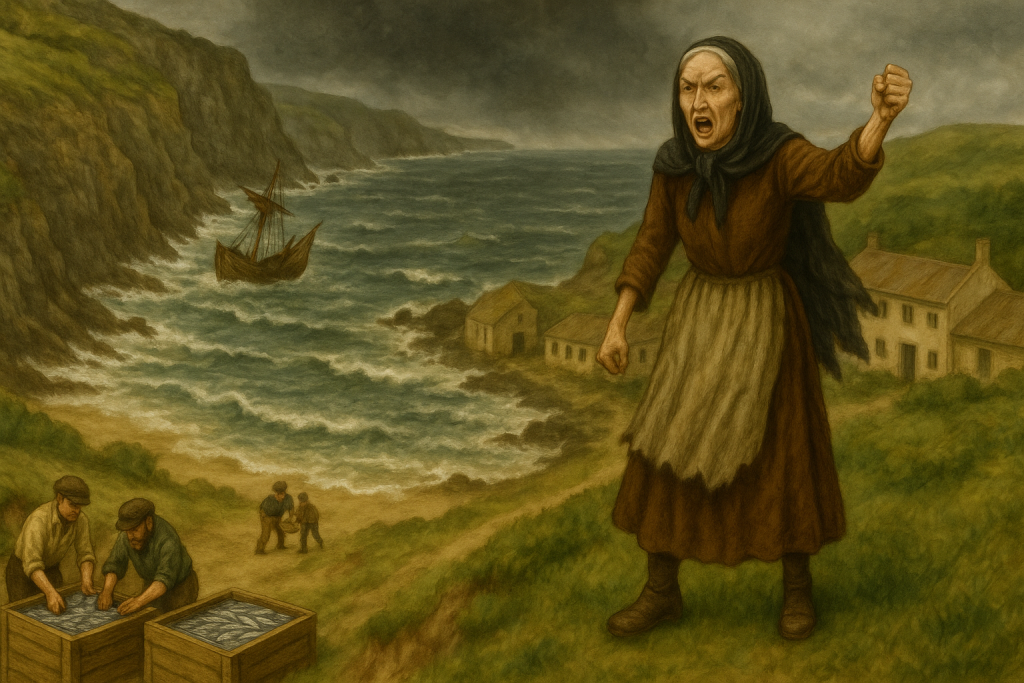
The Legend of Mother Ivey’s Curse casts a long shadow over the cliffs between Harlyn Bay and Mother Ivey’s Bay on Cornwall’s north coast. Known locally as a wise woman or white witch, Mother Ivey was said to live near the sea and was respected — and feared — for her powers. Her name endures in the bay that now bears it, and her story is steeped in both folklore and social justice.
In the 19th century, the Hellyar family, wealthy landowners and fish merchants, operated pilchard cellars near Harlyn, profiting from the booming Cornish fish trade. They lived in a grand house that is now the Pig Hotel at Harlyn Bay. One season, after a particularly large haul of pilchards, the Hellyars refused to donate any of their catch to a starving local family, despite pleas from their own workers, deciding instead to plough the surplus into a field. Outraged by the greed and indifference, Mother Ivey cursed the land and its owners, vowing that suffering and misfortune would follow anyone who profited unjustly from the sea.
According to legend, the curse was soon fulfilled: a fishing boat linked to the cursed cellars was lost at sea, and several lives were taken. But the most chilling twist came when the merchant family’s own son was allegedly thrown from his horse and killed while riding. Over time, the local pilchard trade declined, the fish cellars were abandoned, and the family’s fortunes faded. Locals have long believed this stretch of coast remains under Mother Ivey’s curse, especially during stormy nights when the sea seems to echo with warnings from the past.
Today, Mother Ivey’s Bay is a place of beauty and tranquillity, its windswept cliffs and calm waters belying the dark tale behind its name. The story of Mother Ivey serves as a reminder of Cornwall’s enduring traditions of folklore, maritime danger, and a deep moral code, where justice — whether human or supernatural — was never far from the shore.